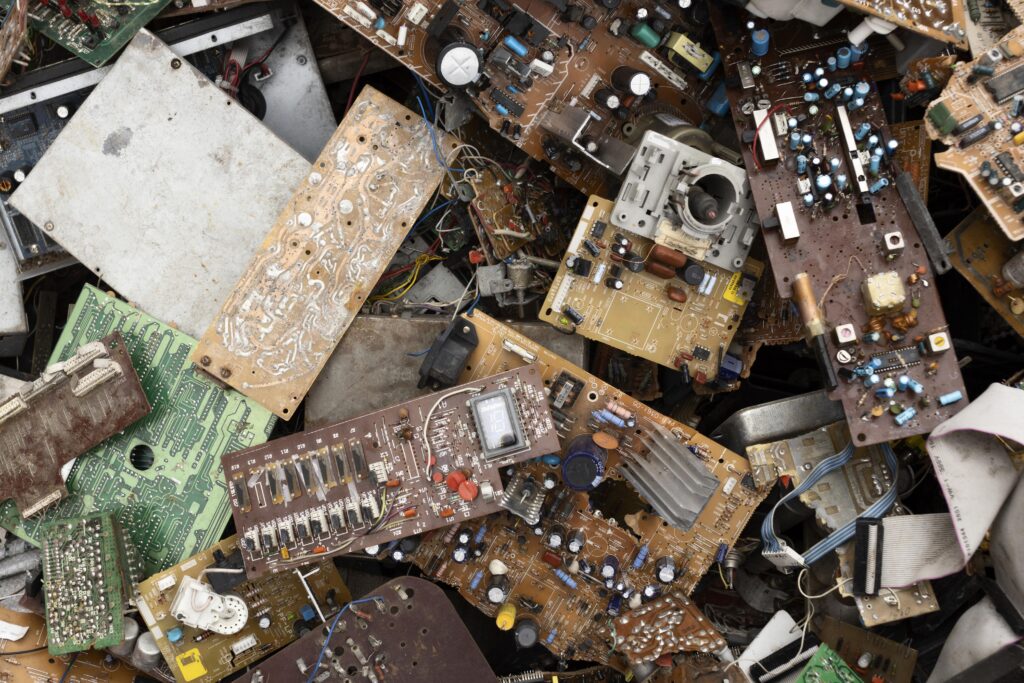ERI’s partnership with ReElement Technologies to recover rare earth elements from discarded electronics also holds relevance for crypto and blockchain audiences, as the availability of these minerals directly influences the production of high-performance chips and hardware that power decentralized networks. The collaboration itself is focused squarely on recycling, but its impact reaches into the broader tech infrastructure that underpins digital assets.
ERI, one of the nation’s largest electronics recyclers, is taking a major step into the rare earth supply chain through a new partnership with ReElement Technologies. The two companies are joining forces to address a growing but often overlooked problem: the vast majority of rare earth elements inside everyday electronics still end up in landfills. As demand for these materials increases across industries such as technology, automotive, energy, and defense, both companies see an urgent need to capture and reuse what is currently being thrown away.
The collaboration brings together ERI’s national scale and expertise in handling end-of-life devices with ReElement’s advanced refining capabilities. With major facilities across California, Arizona, Indiana, Massachusetts, New Jersey, Texas, and Washington, ERI has access to a broad stream of retired consumer electronics. Devices like smartwatches, wireless earbuds, portable speakers, chargers, magnetic charging cases, and small hard drives will now be funneled from ERI’s plants to ReElement’s refining operations.
ReElement, based in Indiana, is already operating a qualifying refinery in Noblesville while constructing a much larger complex in Marion that is slated to open in early 2026. The new 400,000-square-foot facility is expected to become the largest producer of purified rare earth oxides in the United States. At full capacity, it could refine up to 9,000 metric tons of magnet-grade rare earth oxides each year, using both recycled feedstock and material sourced from mined ore.
Mark Jensen, CEO of ReElement’s parent company American Resources Corp. (Nasdaq: AREC), says the partnership has been designed from the ground up to be both innovative and commercially sustainable.
“We have spent the last year working together on a completely innovative and collaborative model between ReElement and ERI that combines best in class technologies and capabilities to take commercial products that have come to end of life and economically return the separated purified rare earth oxides back into the domestic supply chain for commercial and defense applications. Culturally we couldn’t be more excited to build on this framework with the team to expand this partnership both domestically and internationally to ensure that these valuable elements do not go to waste and end up back in the hands of our consumers and war fighters.”
The companies are also evaluating which stages of material preparation make the most sense to perform at ERI’s sites and which should be handled at ReElement’s facilities, balancing efficiency and cost. Jensen has frequently noted that any viable rare earth recycling model must scale economically if it is going to compete with foreign suppliers and create a sustainable domestic pipeline.
ReElement’s refining process itself is a major differentiator. Instead of using the large volumes of solvents common in traditional rare earth separation, the company relies on an aqueous-based system and chromatography. This method moves dissolved material through resin-packed columns, allowing individual rare earth elements—or mixed combinations—to be separated with a high level of purity. It is designed to be cleaner, more precise, and more adaptable than many legacy approaches.
For ERI, the partnership represents a shift from simply preventing waste to actively rebuilding a domestic supply chain that has eroded over decades. Rare earth magnets are central to technologies ranging from electric vehicles and wind turbines to smartphones, robotics, data-center hardware, and military systems. As the U.S. and other countries look to reduce their dependency on Chinese refining, domestic partnerships like this one are becoming increasingly strategic.
John Shegerian, ERI’s Chairman and CEO, sees it as part of a broader mission. “This unique and innovative partnership with ReElement directly supports our goal to advance a circular economy by recovering valuable rare earth elements (REEs) — especially Neodymium — from electronic waste. Thanks to this collaboration, and what each of us brings to the table, we can now ensure that these critical materials taken from common devices – such as wearables like smartwatches and earbuds, magnetic charging cases and chargers, various speakers and hard drives – are responsibly reintroduced into US domestic manufacturing, reducing reliance on foreign sources. This partnership will continue to add to and compliment the current administration’s goals of shoring up our independence on domestic critical mineral solutions to further protect the National Security of the US. It is truly an honor to partner with ReElement and its team of tireless entrepreneurs who are relentless innovators.”
What begins with a discarded pair of earbuds or an outdated smartwatch could soon play a key role in strengthening the nation’s industrial and defense capabilities. Through their joint effort, ERI and ReElement aim to make sure those tiny but vital materials don’t disappear into landfills—but instead return to the technologies that shape everyday life and national security.













